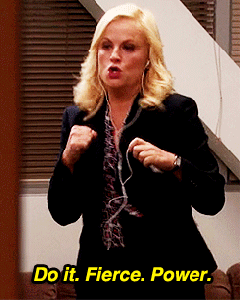Witches changing mid-stream
A reader wrote in:
I’m interested in other moms who have made a big change from pre-mom to post-mom work. Ideally going back to school to change careers, and what that entails.
My husband and I have opened and run a small business for 10 years. We hate it now and are selling it. I’m in the process of going back to school to be a nurse.
We have two girls and have been very flexible with our schedules. My husband will be working full time, and I’ll be in school so we’re expecting a lot of change for 2020.
I’d love to hear about other moms in the same boat. How exactly did their lives change? Was going back to school fun? Hard? Awful being old in class? Did you not give a fuck about your age? Home life changes - Did the kids resent you? Was it super chaotic? Did you ever eat dinner together?
We got some very honest responses:
“I just sat here and finished homework so I feel this. Basically I am tired. All reality aside, when I finally made the decision to go back to school, I realized that, God-willing and the creek not rising, time is still going to pass and I wanted to look back and have no regrets. Now that I’m just weeks away from finishing? No. Regrets. Knowing that in May my daughter will be able to see the tangible results of not giving up, even after 22 years, is soul-soothing.”
“I switched careers when my firstborn was 1, and then again when I was pregnant with my second and during her first year. It was difficult. I didn’t change the family schedule and demanded a shifted work day, but others weren’t leaving as early and it definitely left me out of the loop. There was only one other mom there. I’m glad I stuck with what worked for my family at the time. You're not alone. Kids generally adjust better than we do, and if you and her husband are getting out of a work situation that’s been making you miserable, this change will probably benefit everyone if you’re pursuing things you want to do.”
“My mom went back to school after kids. I recall her barricading herself in our laundry room so she could study. I also recall being extremely proud of her when she graduated. I don't think my parents regretted any of their major career changes (1 for my mom; 2 for my dad). They each needed the change to grow. 🤷♀️”
“I changed careers (got a MEd and became a teacher) after a stillbirth and student-taught while pregnant with my 2nd. I was teaching when I was pregnant the third time. It was tough but my life had been thrown off course anyway so I decided to take advantage and do something I had been wanting to do for years. Turns out being a new teacher with very young children was not for me - I was so conflicted all the time, the work/life balance was horrible. So I went back to nonprofit work but my education degree and experience has been so important to this phase of my career. I don't regret any of it. Being old in class was fine (the program was designed for career-changers), and school wasn't that hard, but time management was. I eventually became an Executive Director, which has been a big change for our family that we are still figuring out. But having a supportive spouse is an enormous part of it - I got his buy-in at every step. 'Eating dinner together' means something different than it used to — more take-out and processed food in our house, sometimes it's them sitting at the table with me while I eat before they go to bed, and it does not happen every night.”
“Re: Being the oldest in class, there are a lot of career changers out there, and professors will be middle age or older most of the time. I found that my perspective was unique and therefore valued. Ultimately, I couldn't maintain the grad school schedule, mostly because my husband's work schedule got insane, and my child with special needs didn't do well when my husband was working crazy hours and I was stressed from studying. I think if I was having a better experience with the program I was in, and not constantly doubting whether or not I wanted to work in the field, I would have stuck it out. But it didn't seem worth it to have to manage so much stress for a program that wasn't serving me. We made a point of eating dinner together whenever possible, and valued it more. My neurotypical child did not resent me, and did well with it all. I was a much stricter parent because I had less time for crap. It also made me better at time management and efficiency, which is helpful with parenting.”
I also put out a call for advice on Twitter, also, and got a more detailed response from witch Alexandra Spurlock:
“Overall, a later in life career change with kids has been better than I thought it would be. Not easier, but better. I'm 30, a single mom to a 2 year old girl. I am currently in TX, and have my dad 3 hours away, but other than that my family is either in New York, or back in the Detroit area where I am from. So I am doing this by myself for the most part, but I am lucky enough to have an extremely kind and flexible daycare that my daughter loves going to. This is probably my first key to success.
Going back to school myself has been amazing. I love using my mind in a new way, and as cheesy as that sounds, there have been several times in my nursing classes where everything just 'clicked with regard to the science and logic behind certain medical situations my friends and family have been in. Nursing fills in the gaps to bits of information I half-knew before starting, and I am enjoying getting that knowledge. Basic health information is so valuable to us (especially us parents) on a daily basis. So while I am not getting off the charts grades, I am enjoying the content.
As a 30 year old with a child, I had some fears about being the older outcast among the bright eyed youths, but I am so pleased that has not been the case! I am in an accelerated program aimed at people with other schooling or other degrees, and I would say the average age of my program is around 30. There are plenty of moms, older women (at least two over 50), a handful of men, and probably only a quarter are under the age of 24. Everyone has been really kind and inclusive to one another, and I attribute that partly to our maturity level. Before the orientation, I was nervous about meeting people, so I made a choice to be outgoing. Having friends in this program is crucial for companionship and venting, but also because we will all study together, sending around study guides and tips. You need friends for nursing school (and probably most intensive programs). My first day, I was at table with a 50+ woman, and realized as nervous about the experience I was, she was probably much more, so I made a special effort to be friends with her, and I am pleased to say that the entire cohort is pulling for her to be our valedictorian, which she very well may be. Several of us have become very close friends, and we text all the time about stuff unrelated to school, which has been so nice to have some non-mom friends that make me feel like me again, and not just full-time toddler mom-me. My friends will come to my apartment for study sessions because it’s easier for them to come to me rather than me find a sitter for my LO, and they don't mind at all.
As for studying/ home life balance, this is hard. The major challenge with kids is just finding the time to study. My daughter is 2, so she doesn't understand ‘Hey baby, mom needs to focus for an hour, can you watch a show?' So I mostly do my school work after she goes to bed, and I'm already tired at that point. So my studying is a lot of picking important parts, and skipping long readings, and relying on my friends to send me their study guides to kind of help me identify on what I need to focus on. We divide the chapters among us to condense and that is probably my second key to success. My first key (the flexible daycare) is also really helpful here because if I have a round of tests coming up, I can drop her off an extra day or so. Also I try my best to stay organized, look ahead to upcoming tests, and study a little bit as early as possible because gone are the days of cramming the night before, you never know when a fever will cause a late night trip to the ER, or when your daughter wakes up screaming for seemingly no reason, and will only calm down if she's in your bed, holding hands with you.
My daughter watches a bit more TV than I would like because need to squeeze in some stuff here and there, and also because sometimes I am just so worn out that I just want to plop on the couch and zone out on Instagram for a minute at the end of the day. But I make time to do fun stuff with her, I make time to exercise, and make time to cook larger meals so I have plenty of leftovers to either take to school or quick reheat for dinner after a long day where I don't want to put any effort into cooking.
Try to make time for you to do things you like: don't let the stress build. This is hard to do, but it really helps me to go on a long run, or carve a night out without school stuff where I will just scrapbook and listen to podcasts.
TLDR:
1. People are nicer than you think they will be
2. Have reliable childcare
3. Make friends (or study alliances) to divide up readings
4. Plan ahead!!! There are many external factors for moms that can throw everything off so be ready!
5. Make time for you!”

End credits:
I hope you enjoyed today’s issue of Evil Witches, a newsletter for evil witches. If you’re not already, please consider becoming a paying subscriber to support the work and also enjoy some extra content. Or at least please forward to a bunch of friends and encourage them to subscribe!
You can follow us on Instagram and have witchy conversations on Twitter too. If you’re interested in writing a guest post, have a suggested topic or have any general questions or you can reply right to this newsletter.
I got a thoughtful response this week regarding an issue from last year with tips on buying a home:
It caught my attention -- "a neighborhood that is likely to improve" is code for "under-resourced community," and it's problematic for people to move into these communities with the goal of improving their home values, because the people who already live there become collateral damage. Instead of recommending that new arrivals invest in the existing community, so everyone can succeed together, this piece recommends focusing on activities that increase their personal wealth. The people who suffer tend to be people of color and/or those at lower socioeconomic levels. This is the kind of advice that has the potential to perpetuate systemic racism. I hope you appreciate where this is coming from: I write a blog and a column for moms, and I rely on many people to nudge me in the direction of doing less harm.
Thanks for this input, which is very well-taken. I regret that I didn’t more carefully consider that point. This response made me realize that the hugeness and complication of the topic made me elide into being a little less informed and sensitive. Even if I’m not personally currently in the market for a home, or if the issue seems too entrenched and systemic for me to do much about, I’m part of the problem if I am fine with being less informed, especially if I’m a voter who can support meaningful policies. I found some resources for witches in the same boat who want to narrow their gentrification blind spots:
The New Republic: How to stop gentrification (good for historical context)
Johnathan S. Perkins: Gentrification: Urban White Allies’ Most Prevalent Failure (on allyship, and suggestions for varying levels of allies)
CityLab: Untangling the Housing Shortage and Gentrification (to consider regarding picking political candidates)
Shelterforce: 7 Policies That Could Prevent Gentrification
I read all these in a little over a half hour, including some kid-related distractions. Obviously this is not a solution but knowledge is a start. Now back to our regularly scheduled nonsense.
One witchy thing





